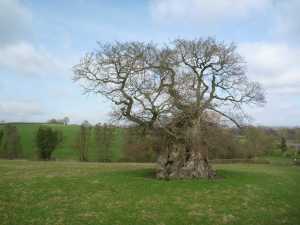Gyorgyi Voros – Forest Orison


“In the summer of 1903, just before he turned twenty-four, Wallace Stevens joined a six-week hunting expedition to the wilderness of British Columbia. The adventure profoundly influenced his conceptions of language and silence, his symbolic geography, and his sensibilities toward wild nature as nonhuman other.
The rugged western mountains came to represent that promontory of experience – green’s green apogee – against which Stevens would measure the reality of all his later perceptions and conceptions and by which he would judge the purpose and value of works of the human imagination.
Notations of the Wild views his poetry as a radical reimagining of the nature/culture dialectic and a reinstatement of its forgotten term – Nature. Gyorgyi Voros focuses on three governing metaphors in Stevens’ poems – Nature as house, Nature as body, and Nature as self.
 She argues that Stevens’ youthful wilderness experience yielded his primary subject – the relationship between human beings and nonhuman nature – and that it spurred his shift from a romantic to a phenomenological understanding of nature.
She argues that Stevens’ youthful wilderness experience yielded his primary subject – the relationship between human beings and nonhuman nature – and that it spurred his shift from a romantic to a phenomenological understanding of nature.
Most important, it prompted him to reject his culture’s narrow humanism in favor of a singular vision that in today’s terms would be deemed ecological.” Notations of the Wild
Forest Orison
Whoever spoke to me first—
rock, wind, bird, or fir—whoever broke
 the membrane of silence
the membrane of silence
(I watched its tatters waft like
rags of albumen in water)
whoever made skin skin, not
air, not fur, not sand, not fiber,
whoever uprooted me from the soil
of nothing, whacked breath into me,
unleashed my voice, I ask you now:
Come back.
I know you’re there. I see
your hoofprints in muck, your
signature in torn tree bark, hear
your rowdy scuffle as I walk by.
The leaves Sway. Where you’ve nested
the pressed grass cups form without
substance. Smack in my path
your scat sings its small joke:
blackness riddled with seed and sign.
I’ve heard you breathing softly
snuffling to smell my smell
moving near and ever away.
Your tail has flicked fire on the path
before me, your shape assembled
from deep within the patterned trees,
then come apart. In the rain
in the brisk sigh of ice on the river.
I’ve heard your voices.
When I call, you answer with
a whoosh and shut of air,
and ringing silence.
I ask again and will again:
Come back.
From Ecopoetry Anthology





 Strong in their forest-pride when I was young.
Strong in their forest-pride when I was young.